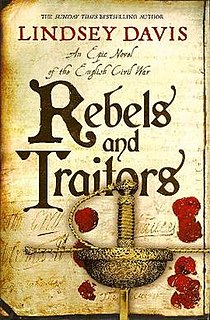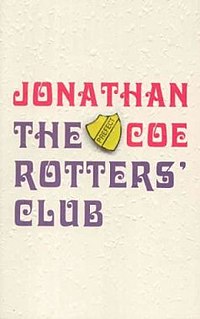 W
WChanging Places (1975) is the first "campus novel" by British novelist David Lodge. The subtitle is "A Tale of Two Campuses", and thus both the title and subtitle are literary allusions to Charles Dickens' A Tale of Two Cities. It is the first text in Lodge's 'Campus Trilogy' of novels, followed by Small World (1984) and Nice Work (1988).
 W
WFelicia's Journey is a novel written by William Trevor, first published in 1994. The novel was made into a 1999 film of the same name.
 W
WLiving is a 1929 novel by English writer Henry Green. It is a work of sharp social observation, documenting the lives of Birmingham factory workers in the interwar boom years. It is considered a modern classic by scholars, and appears on many university syllabi. The language is notable for its deliberate lack of conjunctives to reflect a Birmingham accent. As well, very few articles are used, allegedly to mimic foreign languages that use them infrequently. It is considered a work of Modernist literature.
 W
WMiddle England is a 2018 novel by Jonathan Coe. It is the third novel in a trilogy, following The Rotters’ Club (2001) and The Closed Circle (2004). The novel explores the experiences of characters from those earlier novels against the backdrop of the major events taking place before, during and after the Brexit referendum.
 W
WNice Work is a 1988 novel by British author David Lodge. It is the final volume of Lodge's "Campus Trilogy", after Changing Places (1975) and Small World: An Academic Romance (1984). Nice Work won the Sunday Express Book of the Year award in 1988 and was also shortlisted for the Booker Prize.
 W
WRebels and Traitors by British historical novelist Lindsey Davis was published by Random House in September 2009 (ISBN 9781846056321). In contrast to the ancient Roman setting of the Falco books and Course of Honour, this book is set in the English Civil War period of the 17th century. At 742 pages it is substantially longer than her previous novels.
 W
WThe Rotters' Club is a 2001 novel by British author Jonathan Coe. It is set in Birmingham during the 1970s, and inspired by the author's experiences at King Edward's School, Birmingham. The title is taken from the album The Rotters' Club by experimental rock band Hatfield and the North. The book was followed by two sequels.
 W
WWhat Hetty Did is the seventh novel by J.L. Carr, published in 1988 when he was 76 years old. The novel describes the experiences of an 18-year-old girl. Hetty Birtwisle has been brought up by adoptive parents in the Fens; after a beating by her father, discovering that she was adopted, she flees to Birmingham where she has learnt she was born and alters her surname to Beauchamp.
 W
WWhat Was Lost is the 2007 début novel by Catherine O'Flynn. The novel is about a girl who goes missing in a shopping centre in 1984, and the people who try to discover what happened to her twenty years later. What Was Lost won the First Novel Award at the 2007 Costa Book Awards, and was short-listed for the overall Costa Book of the Year Award.